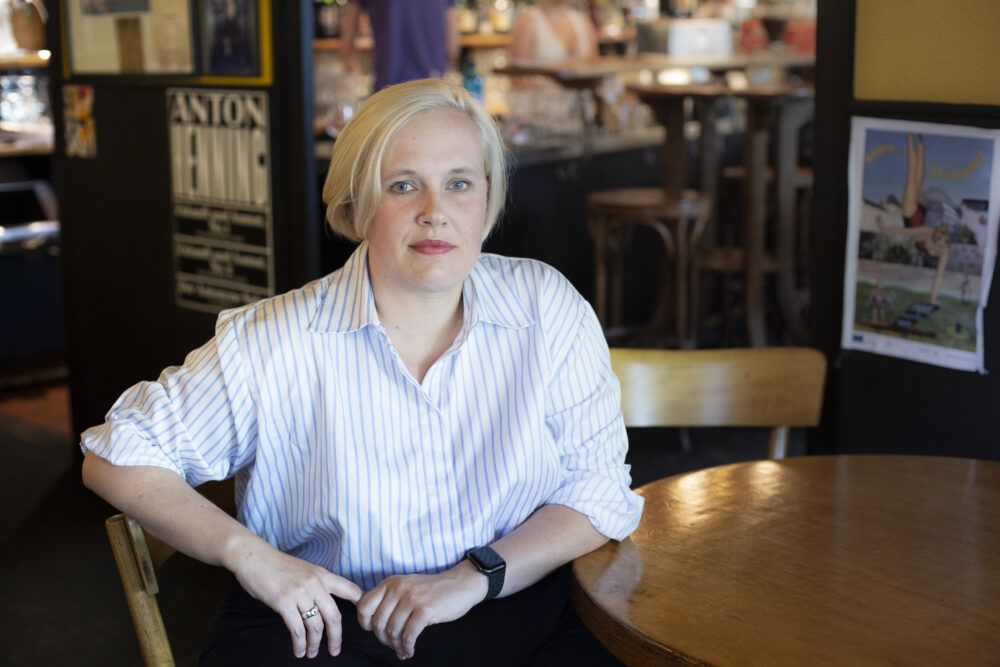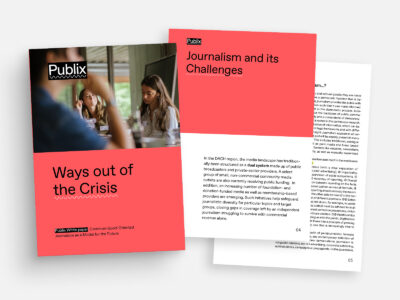eXit is our only hope
For the longest time, I hoped that Twitter could survive the likes of Elon Musk… but he managed to destroy it. So, what can we do to counteract hatred and right-wing disinformation campaigns on X? Leave the platform, all together.
By writer, Anne Rabe

I loved Twitter. It was, and has remained, the only social network I’ve ever felt comfortable on, partly because text is my medium. I admire people who can tell stories with images, of course, but I’ve never been interested in using photo apps as anything other than notebooks and dairies. I don’t use filters, and I only touch up my photos when I’m really bored, which rarely makes them any better. That’s why I always found Facebook quite tiring, and why I don’t enjoy Instagram. Facebook was like watching those slideshows your aunts or uncles used to put on (do they still exist)? Instagram is like this surreal glossy nightmare where nobody from the real world ever really seems to fit in. I scroll through my Instagram timeline, and it feels like I’m stuck in a dream. I know I’m dreaming, but I can’t wake up. And when I put down the phone, I feel empty and exhausted, even though I haven’t actually done anything.
With Twitter, on the other hand, I was on fire. Short, snappy, witty, sensitive, and informative snippets of text, and they would all be there at the same time, one after another. With Twitter, it felt like someone had literally poured my brain into an app. I think while reading, I think while writing, and I quite often think about a lot of things at the same time. I love the power of association from which something new can emerge simply by having seen two very disparate things side by side. Twitter was like an essay on the present, written in real time; unedited, unabridged and unpolished. And the best thing was, you could debate it in real time. You could really get involved, express your thoughts, and create something altogether new.
I didn’t just have fun on Twitter, I met some of my best friends there. One night during the pandemic, for example, I was sitting at my desk working on my first novel, exhausted and despondent. With the kids at home, it was too loud to work during the day, so that night I turned to Twitter for help. I asked if anyone knew of a library in West Berlin that was open and quiet at night, ideally with a coffee machine. Two days later, I had the key to an office with my own desk, later I’d even get my own room. The owner simply handed over the key, we’d never even met. She just happened to read my tweet because she was still awake.
I found the first readers for my essays on Twitter. I could publish thoughts and research that would frequently turn into longer texts. It was also through Twitter that I found out how to have my kids vaccinated. I was just constantly inspired by others, by their texts, their day-to-day observations, their clever takes on things or their pithy descriptions of their own shortcomings.
I really did love Twitter.
But Twitter doesn’t exist anymore and not just because the social network that used to be Twitter is now called “X”. Twitter’s gone. Elon Musk bought it and decimated it. He wanted to do just that, and he did it very well.
The business itself had already begun to change before he bought it two years ago. Disinformation campaigns, troll factories, and the various crises of the last few years had forced me, again and again, to block other users. No big deal, I thought, it’s not like I would let just anybody into my home either. Honestly, there’s next to no one I would allow into my home like that, why should things be any different online?
After Elon Musk took over, however, it got harder and harder to maintain cleanliness on my timeline, my online home. It wasn’t a question of keeping to my own little bubble, it was often just about the basic principles of co-existence. Threats, insults, and violent fantasies began to appear more and more frequently under my posts. Musk changed the algorithm so that these voices would become more dominant. That was his political agenda. The block function soon became useless, and disinformation campaigns were provided with greater reach. His new advertising partners consisted primarily of fake news sites and scammers. Plus, the humour disappeared. The little day-to-day observations, jokes, and oddities all disappeared, and they took the light-heartedness of Twitter with them.
It was foreseeable, of course. Elon Musk was hardly new on the scene two years ago. He had long been open about his political agenda. Nor was it new in 2022 for autocrats and those on the extreme right to bring their political agenda into the mainstream under the guise of free speech. Nevertheless, I had hoped that Twitter would survive it all somehow, that I just had to make the effort to do a little digital housework every day, and it would still be there, under the rubble and debris. I’d hoped it could still be saved. But it’s gone. “X” is not Twitter.
I recently read an article in the Washington Post about a successful demobilization campaign during the US election that had been implemented by people close to Elon Musk. With recourse to tactics including fake Harris spots aimed at specific groups, certain voting demographics were deterred from putting an X for the candidate for whom they would otherwise have voted. All attempts by the democrats to delete these spots failed because the major platforms, such as Facebook and Google, had relaxed their standards following accusations that they were excessively left-wing.
Attacks on Western democracy are in full swing and have been for some time now. Elon Musk is part of an authoritarian movement, some sections of which are outright fascist. We live in a time of men with grievances, of men who want to take revenge on the world they think has failed them. Defending ourselves is not easy. Indeed, the most recent US election has shown just how influential they are. Elon Musk wants to see the world burn. With the President at his side, he wants to fully throw his toys out of the pram and take revenge on all those he blames for his own unhappiness. As individual users, there’s not an awful lot we can do to stop him. Research and counter-narratives don’t do any good. They don’t get through, because we play by different rules.
Ultimately, our only choice is to stop using the platform, to stop paying attention. The success of this strategy will depend on how many people decide to eXit. Whether any of the newer networks, such as Mastadon or Threads on Instagram, are fit to succeed Twitter has yet to be seen. Like many others, I’ve been trying Bluesky, and some of it – such as the memes and the exchanges – actually remind me of Twitter. The most aggressive reactions to a post are not rewarded by the algorithms on Blue Sky, which feels good. But I’ve grown more cautious, and I don’t think I’m the only one. I no longer wear my heart on my digital sleeve. Ultimately, it’s clear that if a network is big enough, it can become part of its owners’ political strategy.
Anne Rabe's novel, ‘The Possibility of Happiness’, looks at the legacy of the GDR and was nominated for the German Book Prize in 2023. Rabe is co-founder of PEN Berlin and left the Platform X with 65 other German-speaking authors, academics and MPs at the beginning of December under the slogan #eXit.
Fotocredit: Annette Hauschildt


